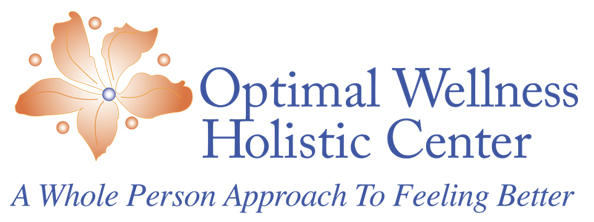Is inflammation helpful or harmful? Inflammation is a natural process that occurs in the body to protect itself from injuries and infections. It is beneficial in acute situations. However, if it becomes chronic, it can harm your health. Chronic inflammation can last for months or years. If not controlled, it can cause premature aging, cognitive decline, muscle atrophy, compromised digestive function and weight gain. Research shows that chronic inflammation is the underlying reason for almost every major health condition and disease like diabetes, thyroid issues, heart disease, cancer, Alzheimer’s disease and more.
The most commonly used drugs to treat chronic pain and inflammation include opioids (morphine), non-steroidal anti-inflammatories (NSAIDs such as Aspirin and Ibuprofen/Advil) and Tylenol. All of these drugs have awful side effects and addictive tendencies. Medications like Aspirin, Ibuprofen and Tylenol are easily accessible and inexpensive. Most people believe that they are not harmful but they have serious side effects. They are linked to heart problems, stroke, stomach ulcer and bleeds as well as kidney and liver damage.
In this article, I will discuss some of the top strategies from lifestyle factors to supplements to help you reduce pain and inflammation.
- Eat an Anti-inflammatory diet
Remove inflammation by removing sugar and grains. I recommend a lot of whole foods rich in antioxidants like kale, broccoli, collards, spinach and onions. Small amounts of low-glycemic fruits like berries, lemons, and limes are great too. Eat a healthy amount of good fats like avocado, olives, coconut oil, MCT oil, extra virgin olive oil. Other fat sources include coconut milk, nuts, seeds, pasture raised meats and wild fish. You definitely want to avoid highly proceeded oils like canola, safflower, corn and soy as they are highly inflammatory to the body.
- Eat Phytonutrients like herbs and spices
Turmeric is being recognized in the scientific literature as the new king of anti-inflammatory nutrients. This herb contains the phytonutrient curcumin that quells pain and inflammation. Turmeric can be used as a spice in entrees and teas. Resveratrol is another nutrient that works synergistically with turmeric to smother inflammation.
Green tea is a great tasting drink which contains a natural antioxidant called epigallocatechin-3 gallate (EGCG) not found in black tea. Studies suggest that EGCG works to stop the production of certain inflammatory chemicals in the body.
Garlic contains allicins which are phytonutrients shown to reduce pain and inflammation and lower heart disease risk.
Basil and Oregano are easy to use herbs in almost any dish and are a great antioxidant and anti-inflammatory duo.
Ginger is a favorite because it diminishes pain and inflammation and helps relieve stomach issues. Try eating a small amount of fresh ginger at meals to cleanse the palate and reduce stomach upset.
- Eat Essential Fatty Acids (EFA)
Eighty percent of Americans are deficient in essential fatty acids. Besides decreasing pain and inflammation, they play an important role in producing hormones, cell membrane function, regulating blood pressure, cholesterol levels and much more. The body does not make EFA so you have to obtain it from food or supplements. Salmon is an excellent source of EPA (eicosapentaenoic acid) and DHA (docosahexaenoic acid), two potent omega-3 fatty acids that douse inflammation. Be sure to include some oily fish such as wild Alaskan salmon in your diet twice a week. Other sources of the anti-inflammatory EFA can be found in anchovies and sardines, free range eggs, grass fed meat, walnuts, almonds and chia seeds.
If you’re unable to get EFA from food, the best supplement is with plant-based EFA from algae. Many people supplement with fish oil but choosing EFA from algae is safer because it is not highly processed and is free of heavy metals. Why not skip the fish and go straight to the source ensuring purity, safety and absorbability?
- Take Proteolytic enzymes
Proteolytic enzymes are specific enzymes that digest protein. These enzymes are naturally produced by the body and help carry out essential functions. They are essential for our immune system and optimal digestion. When taken away from food, they are effective in reducing inflammation, pain and swelling.
You can receive the benefits of enzymes by eating lots of raw and fermented fruits and vegetables. However, you may also benefit from supplementing with enzymes, especially if you are dealing with chronic inflammation. Proteolytic enzymes can be used effectively in combination with anti-inflammatory herbs and bioflavonoids like turmeric, resveratrol, ginger and ECGC from green tea.
Numerous published studies prove that proteolytic enzymes reduce pain and inflammation as fast as NSAIDs, but far more importantly, they speed up the healing process faster than the drugs themselves. NSAIDS actually slows down healing by blocking the production of a protective prostaglandin compound.
I recommend the Natural NSAIDS Pack which includes proteolytic enzymes, EFA, and phytonutrients to combat pain and inflammation.
- Digest your foods. Eat until 70 Percent full. Don’t overeat.
When you overeat, you do not digest your food properly. Too much food leads to body fat and fat releases inflammatory chemicals. The more fat you have, the more pain and inflammation. Excess calories are hard to digest. The gut does not recognize undigested foods and subsequently creates an inflammatory reaction. This happening on a regular basis can lead to autoimmune conditions. Conversely, when you eat thirty percent fewer calories than the RDA, you can live longer and healthier.
Eat more raw foods and taking digestive enzymes with cooked foods is recommended. Relaxing and taking deep breaths before meals as well as chewing 30 times before swallowing are other tips to help with better digestion. Better digestion equates to less inflammation.
Consistently incorporating these lifestyle factors and nutrients will help you keep inflammation at bay. If you’re still having issues after following these tips, contact us so we can help you get to the root cause of your pain and inflammation.
